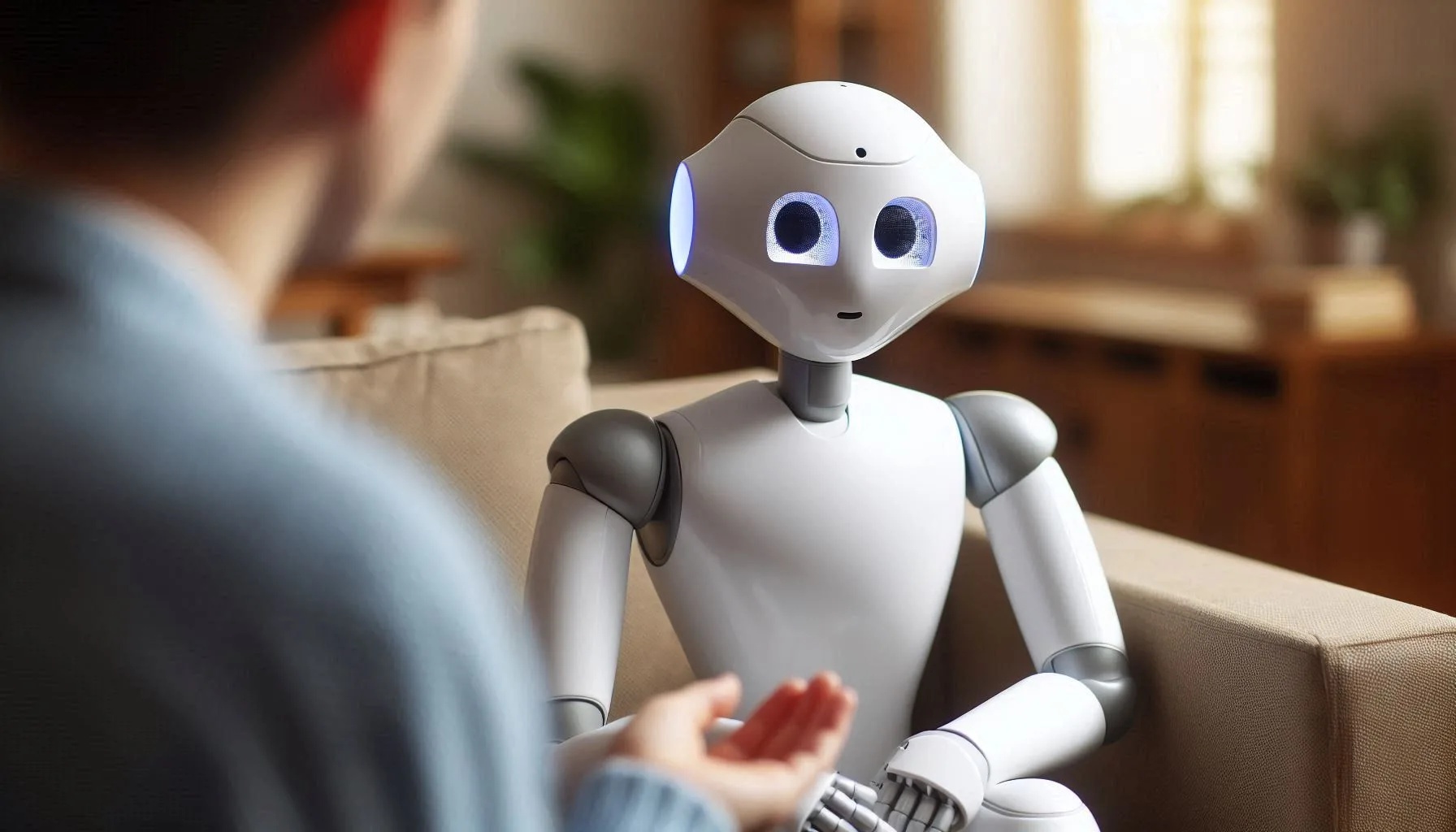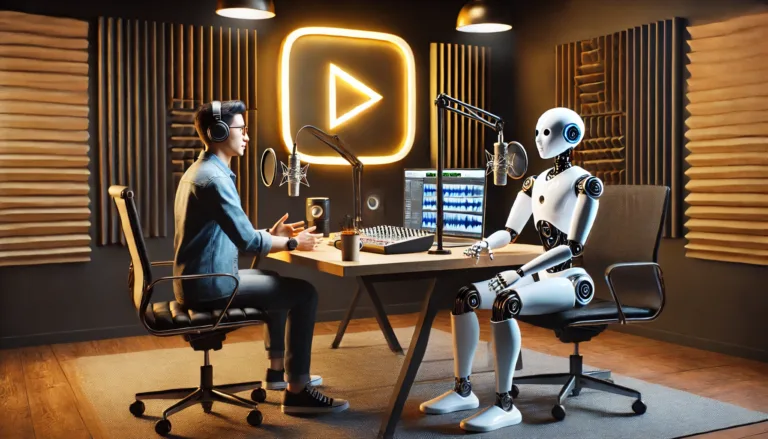As artificial intelligence continues to revolutionize various industries, one area that stands out is mental health. With the rise of AI-powered platforms, chatbots, and virtual assistants like ChatGPT and Claude, the question of whether AI can serve as a therapist has become increasingly relevant. This blog delves into how AI is currently used in therapy, what the future holds for AI in this field, and how these technologies could shape the way we approach mental health care.
The Role of AI in Therapy Today
AI’s entry into the mental health space is not entirely new. For years, mental health professionals have used digital tools to provide remote therapy, manage patient data, and offer cognitive behavioral therapy (CBT) exercises. However, recent advancements in AI have opened up more sophisticated possibilities, allowing AI to mimic human conversation, analyze emotional responses, and provide real-time feedback to users.
1. AI Chatbots and Therapy Apps
AI-based chatbots are becoming increasingly common in mental health apps. These apps use natural language processing (NLP) to offer users personalized conversations about their emotional states. Some popular examples include:
- Woebot: A chatbot designed for mental health support, Woebot uses NLP to engage users in conversations about their feelings. It offers CBT-based exercises to help manage anxiety and depression.
- Replika: Initially designed as a social companion, Replika has evolved into an AI tool that provides emotional support. Users can talk to Replika about their problems, and the AI responds in ways that mimic human conversation, offering empathetic responses.
- Wysa: Another chatbot for mental health, Wysa offers CBT exercises, mindfulness techniques, and coping strategies for stress and anxiety.
2. AI-Powered Websites and Platforms
Websites like BetterHelp and Talkspace offer remote therapy sessions, and while these platforms primarily feature human therapists, AI could potentially assist in matching patients with suitable therapists based on the user’s specific needs, moods, or past behaviors. Over time, AI could also offer a hybrid model, combining human and AI interactions to optimize therapy sessions.
Can AI Replace Human Therapists?
The current role of AI in therapy is mainly as a supplement to human therapists, rather than a replacement. AI lacks the depth of emotional understanding and empathy that human therapists provide. While AI can analyze patterns in speech, it still struggles to comprehend deeper, complex emotions that are crucial in therapy.
However, AI has its strengths. It can:
- Provide immediate support: AI-powered chatbots are available 24/7, offering instant responses to users who need immediate emotional support.
- Reduce the stigma: Some people find it easier to open up to a non-judgmental machine, which could encourage more individuals to seek help without feeling ashamed.
- Improve accessibility: AI-based therapy apps and chatbots can reach underserved populations who may not have access to traditional therapy due to financial or geographic barriers.
The Ethical Considerations
As AI becomes more integrated into mental health, several ethical considerations arise:
- Privacy and confidentiality: AI-powered platforms handle sensitive personal data, raising concerns about data security. Ensuring that user information remains confidential and secure is critical.
- Bias in AI: AI algorithms are only as good as the data they are trained on. If the data contains biases, AI could perpetuate these biases, leading to inadequate care for certain demographics.
- Accountability: If an AI gives incorrect or harmful advice, who is held accountable? Establishing guidelines and regulations for AI in mental health will be essential as these tools evolve.
AI as a Therapist in the Future
The future of AI in therapy holds promise. As AI continues to improve, its role could expand from simple chatbot interactions to more complex forms of therapy. Here’s what we might expect in the coming years:
1. More Personalized Therapy
AI has the potential to provide highly personalized therapy sessions by analyzing vast amounts of data from user interactions. By understanding a person’s unique patterns of behavior, AI could offer tailored therapy programs that adjust to the individual’s needs over time. This could include a combination of CBT, mindfulness, and other therapeutic approaches.
2. Emotion Detection and Sentiment Analysis
AI is getting better at detecting emotions through facial recognition, voice modulation, and sentiment analysis in text. Future AI therapists could use these capabilities to gauge a user’s emotional state more accurately, providing real-time feedback based on tone, body language, or even the user’s typing patterns.
3. Virtual Reality (VR) Therapy with AI Integration
The integration of AI with virtual reality could offer immersive therapy experiences. Imagine stepping into a VR world where your AI therapist guides you through a calming environment or a simulated social interaction designed to reduce anxiety. AI could analyze your reactions in real time and adjust the therapy experience accordingly.
4. Hybrid Models: AI and Human Collaboration
In the future, AI is likely to complement human therapists rather than replace them. A hybrid model could combine the efficiency of AI with the emotional depth of human therapists. AI could handle the administrative tasks, monitor progress, and provide initial support, while human therapists focus on deeper emotional connections and more complex issues.
5. Integration with Wearable Devices
Wearable devices like smartwatches and rings could work with AI-based therapy apps to track a user’s physiological data. These devices can monitor heart rate, sleep patterns, and stress levels, feeding real-time data to AI, which can then adjust its therapeutic responses based on the user’s current physical and emotional state.
How You Can Use AI as a Therapist Now
If you’re interested in incorporating AI into your mental health routine, there are several ways to start today:
- Mental Health Apps: Apps like Woebot, Wysa, and Replika offer accessible ways to engage in AI-powered conversations about mental health. These apps can guide you through CBT exercises, offer mindfulness practices, and provide real-time support during emotional distress.
- Chatbots and Virtual Assistants: AI chatbots like ChatGPT and Claude can help users explore their thoughts and emotions in a structured manner. While they are not substitutes for professional therapy, they can provide initial support for managing stress, anxiety, and even depression.
- Online Therapy Platforms: Websites like BetterHelp and Talkspace are already integrating AI in some areas, and this trend is likely to grow. While human therapists handle most of the interaction, AI could assist in creating more personalized experiences for users.
- Wearable AI Integration: Some wearable devices already offer stress management features, and as AI continues to develop, these devices could offer even more robust mental health support. AI could monitor your physical and emotional states, providing personalized advice or nudges to improve your well-being.
Conclusion: The Future of AI Therapy is Promising but Cautious
AI as a therapist offers exciting possibilities, from improving accessibility to mental health care to providing more personalized, 24/7 support. However, AI is unlikely to replace human therapists entirely. The emotional complexities of therapy still require the human touch, and ethical considerations must be addressed as AI becomes more integrated into mental health care.
As we move forward, the future will likely involve a blend of AI and human collaboration, creating more efficient and accessible therapy options for people worldwide. Whether through AI-powered apps, chatbots, or virtual reality experiences, AI will undoubtedly play a crucial role in shaping the future of mental health care.
For those interested in exploring AI therapy, the options available today provide a glimpse of what’s possible tomorrow.




